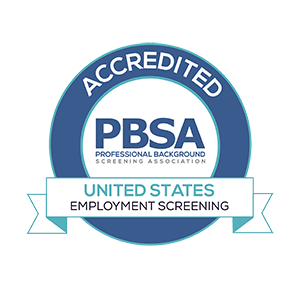Since the April 2012 revision of The Equal Employment Opportunity Commission’s (EEOC) Enforcement Guidance (Title VII of the Civil Rights Act of 1964), employers have walked a fine line toward compliance. EEOC’s guidance establishes strong defense against disparate impact (hiring policies and procedures that directly or indirectly discriminate against someone based on race, color, religion, sex, or national origin). Stronger parameters from the EEOC cause many employers to worry about their ability to manage risk, maintain a reliable staff, and avoid negligent hiring. This balance act is getting a spotlight in New Jersey as the state’s Assembly Labor Committee advanced a bill (A-3837), known as the Opportunity to Compete Act, which would prohibit many New Jersey employers from asking candidates about their criminal histories on applications, and from conducting criminal background checks until after a preliminary job offer is made.
If enacted:
- Employers with 15 or more employees will not be allowed to ask about criminal history on a job application (“ban the box”) or conduct a background check until after the offer is made.
- If a job offer is made, then the employer may ask about criminal history.
- Before a background check is initiated, the employer must notify the applicant of his/her rights and obtain consent.
- Employers will not be allowed to consider records that were expunged or charges that did not result in a conviction.
- When assessing records, employers must consider them within the context of time lapsed since conviction, the rehabilitation and conduct of the applicant since the conviction, the nature of the crime, and the responsibilities of the job.
- A procedure will be in place to address and contest adverse employment decisions made based on the applicant’s history.
It’s not entirely bad news for the employer. The bill comes with added protections for the business, too. Some of these protections include:
- The ability to consider some convictions–e.g., murder, arson, sex offenses, human trafficking, burglary–regardless.
- The employer is not required to hold the position open for a candidate who has been notified of an adverse employment decision.
- Applicants are not allowed to sue an employer for an alleged hiring violation. Instead, the applicant would file a complaint in the state’s Division on Civil Rights (DCR).
- Employers with fewer than 15 employees are exempt.
- There is tough protection against negligent hiring suits.
What do you think of New Jersey’s proposed bill? Do you envision something similar in your area?
We can help you navigate all compliance issues. Contact us for more information.


Leave a Reply
Want to join the discussion?Feel free to contribute!